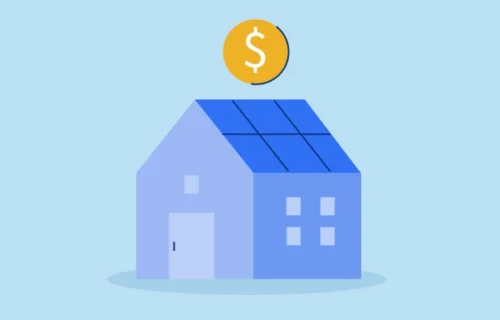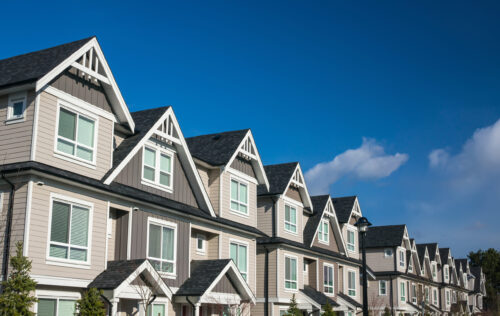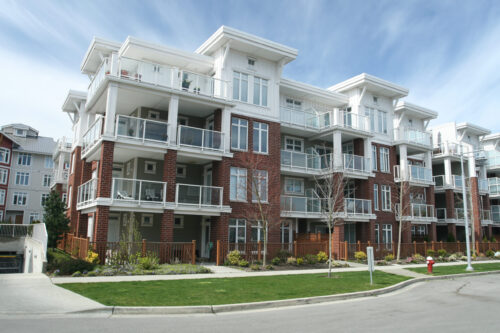
Connect with a Lima One expert today!
If you’d like to know more about this topic or see how it applies to your project, let’s talk.
Investing in the Denver Multifamily Real Estate Market
There’s Big Money to be Made in Denver’s Multifamily Real Estate Market
Denver’s real estate market has been hugely popular among top real estate investors for several years, which is a major reason it annually ranks among the hottest cities in the U.S. for housing growth.
While the rest of the country has been experiencing a tight housing inventory for the past year, Denver is unique in that its housing crunch and tight inventory began before the pandemic. When COVID-19 first rocked the country’s real estate markets, Denver was already experiencing an average home supply of only six weeks and an average of 38 days on the market. Post-COVID, Denver’s average home supply has dropped even lower.
Between April and the end of May, Denver’s inventory dropped 20%. Compared to last year, when the pandemic caused the housing market to hit pause, the inventory of listings is down 71%, according to a monthly update from the Denver Metro Association of Realtors.
Home prices soared more in April 2021 than they usually do in an entire year. This makes Denver one of the tightest and most competitive markets in the nation—causing investors to be extremely aggressive when they find real estate investments in Denver.
Denver Real Estate Market Statistics (May 2021)
- Total Sales: 6,644
- Active Listings: 2,990
- Average Sales Price: $611,702
- New Listings: 7,707
- Months’ Supply of Housing Inventory: 0.51
- Median Sales Price: $525,000
The State of Denver’s Rental Market
Denver is a draw for people who are looking for big city life as well as those who are seeking opportunities to explore the outdoors. Its reputation as a health-conscious city is particularly appealing to young professionals and families – especially people more apt to be renters instead of homeowners. Denver’s promising market makes the Mile High City a good market for investors looking to add to their real estate portfolio.
The Denver real estate market is loaded with opportunities, but here are some important trends to keep in mind.
1. Unemployment is high
In April, the unemployment rate in Denver was 6.4%, whereas nationally, it was at 6.1% - making Denver’s unemployment rate slightly higher than the national average. A high jobless rate could mean that in the near term, fewer people will be willing to resign existing leases or will be unable to sign new leases.
2. Housing inventory is extremely limited
At the end of March, there were 1,921 active listings available for purchase across metro Denver, according to a monthly update from the Denver Metro Association of Realtors. To put that into perspective: there were 5,776 available listings in March 2020 and 6,292 available listings in March 2019.
3. Home prices have soared
Home values are up on a national level, so it's not surprising to see an uptick in Denver. But now, the median home price in Denver is $525,000, representing a huge YOY increase of nearly 20%.
Denver’s housing market has run hot for nearly a decade now, so nobody would blame it for taking a breather, especially a year into a pandemic. Instead, the frenzied pace has only sped up, shattering all kinds of records, and putting the city in the middle of a housing frenzy because of the low supply and high demand for homes. Despite the city’s supply and demand issues, Denver’s housing market broke 16 different sales-related records in April. Homes are appreciating at 11% with real estate valued at 78% higher than it was at the city’s peak in 2008.
Multifamily is King in Denver
Denver’s multifamily real estate market started off strong in 2021 and hasn’t slowed down yet. With the city’s housing inventory at record lows, would-be homebuyers are opting for multifamily apartments because they offer lower monthly payments compared to a mortgage, property amenities, and flexibility. Nationally, multifamily rents increased by 2.5% on a year-over-year basis in May, the largest increase since February 2020, according to the May 2021 Yardi Matrix National Multifamily Report.
A Colliers multifamily report shows that metro Denver in Q1 2021 experienced:
- An absorption rate (the rate at which available homes are sold in a specific market during a given time) of 130 units – a huge decrease from Q4 2020 when the city’s rate was 959 units
- An average monthly rent of $1,587 – showing that Denver’s rental rates are rebounding from post-COVID numbers
- A healthy occupancy rate of 94.3
Denver also saw significant increases in multifamily construction permits – up 45% from February 2020 – and multifamily housing starts. By the end of Q1, there were more than 20,507 multifamily units under construction in Denver. Notably, Denver’s increase in multifamily housing starts happened as many other markets saw decreases post-COVID.
Even during the pandemic, Denver showed it could attract major corporations such as Palantir, Healthpeak Properties Inc. and LogistiCare Solutions LLC, as well as tech companies trading the bustle of Silicon Valley for the mountain ranges of Colorado. Denver has grown exponentially over the past seven years. It’s one of the fastest-growing cities in the country and was named by US News & World Report as one of the best places to live in America in 2019, second only to Austin.
It’s a destination for tech workers fleeing the pricey Bay Area and for metropolitan East Coasters looking for more expansive outdoor space. The new work-from-anywhere culture of the coronavirus pandemic is one of the top reasons Denver is experiencing its most competitive housing market in history.
Many experts believe the city's active lifestyle and central location will continue to draw employers and workers considering relocations. Colorado offers tax incentives to attract large employers, leading businesses and people to exchange the expense of living on the west coast for a more moderately priced area.
Denver appeals to students, young professionals, and families alike. While rising home prices have prevented many residents from buying a home, they give real estate investors an opportunity to buy single-family homes and multifamily units to rent out – a good way to secure a steady stream of income for the long haul.
What Does Denver’s Real Estate Market Mean for Investors?
Housing in Denver is thriving. Home appreciation is up, the number of homes sold is up, and average days on market are down. If you're a real estate investor, it could pay to consider scooping up income properties in Denver. During the latest year alone, Denver appreciation’s rate has been at nearly 4%. If it remains steady, the annualized rate of appreciation becomes 7.35%. Home prices in the Denver-Aurora-Lakewood metro region are expected to increase between 7 to 13% in the next 12 months.
Experts believe that Denver’s tight inventory and increase in demand for homes will push prices higher over the next year. If mortgage rates remain low, it will continue to bolster the home buying activity. Real estate investors need to move aggressively when they find a property that makes the numbers work—with a certainty of financing behind them.
Knowing their exposure through Lima One Capital’s line of credit is one way to do this, and some investors may choose to pay cash on properties and then cash-out refinance after closing. Investors also should consider build to rent strategies to create new housing stock, or multifamily bridge financing given the strength of that type of housing in Denver.
While inventory might be harder to find, investors with strong real estate investment strategies can still profit. It’s now more important than ever to have a lender capable of helping you:
- Secure a loan with the best price and maximum leverage for your next rental investment
- Close properties quickly and certainly
- Run your construction or rehab projects smoothly
Lima One Capital offers that and much more for real estate investors. We are experts in financing multifamily real estate investment opportunities. Our team of experienced professionals will help guide you through purchasing or refinancing multifamily properties in need of value-add rehab or currently turnkey ready.
If you’re researching hard money lenders in Colorado or you’re looking for information about investment properties in Colorado, you need to discover the difference that Lima One Capital offers Denver, CO real estate investors. Get started today and scale your rental property portfolio with Lima One, the nation’s premier lender for real estate investors.
Subscribe for More Insights
Get the latest industry news & Lima One updates.








